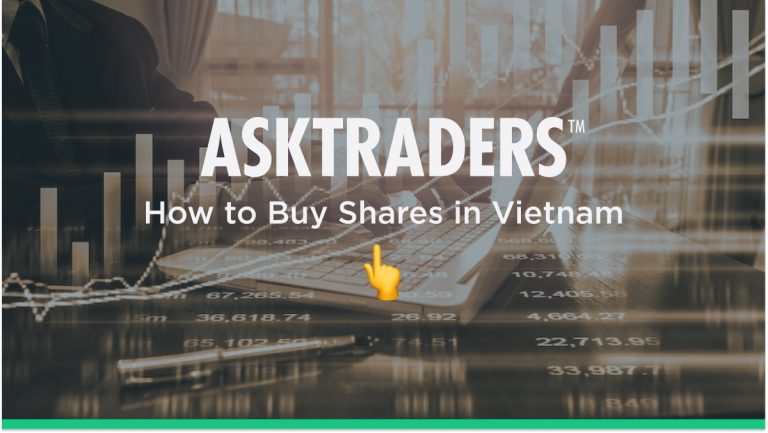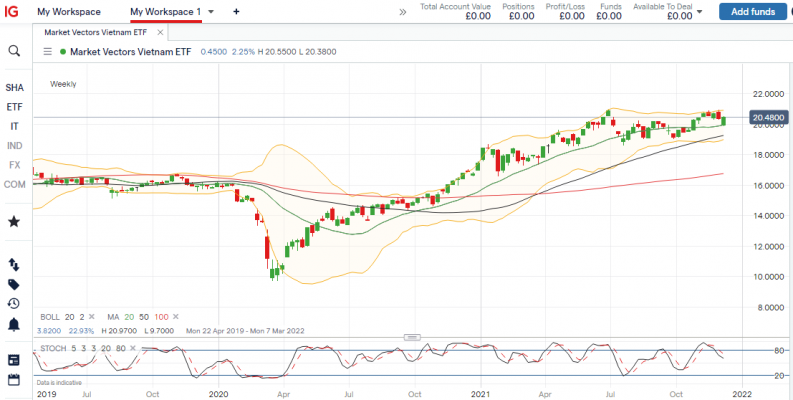
Economists attribute this dramatic change to reforms adopted back in 1986, which enabled the country to move forward quickly and benefit advantageously from globalization trends that were sweeping the globe. As a result, Vietnam soon became an outsourcing and off-shoring target for many markets. After the millennium change, GDP per capita had nearly tripled itself to US$2,800 by 2020, thereby slashing poverty levels across the country from a high of 32% in 2011 down to a current data point of 2%.
Post-war development allowed for modern technology to be built on solid foundations without the obstacle of expensive legacy systems holding back progress. A testament to the economy’s resilience is that it actually grew during COVID-19 lockdown. Counter to most other countries that withstood a negative GDP hit, Vietnam was able to remain positive, one of the few countries in the world so inclined, but the new Delta and Omicron variants have lessened growth forecasts in 2021 to something a few percentage points below the world growth average.
These positive results are borne out by reactions from the investment community, as well. One Exchange-Traded Fund (ETF) weekly chart, which follows the leaders on the two Vietnam stock exchanges, demonstrates that the Vietnam economy rebounded from an early COVID-induced setback to recover beyond pre-COVID share levels. Other similar economies in the Southeast Asia region like Thailand and the Philippines also rebounded but did not accelerate past pre-COVID highs, as did Vietnam. Share prices are up 25% and are positioned well for the future.

Source: IG
There currently exist two stock exchanges in Vietnam – the Ho Chi Minh exchange located in the nation’s capital is the largest with 377 listed companies and with $180m in daily average trading volume. The major companies in Vietnam are traded on the HOSE. The Hanoi exchange (HSX) has 367 listings and daily volume of around $39m. The HSX primarily focuses on small to medium companies. There are plans to combine these two exchanges in the near term.
Vietnam has aspirations of becoming a high-income country by 2045, but in order to accomplish this feat, it will need to compile an annual GDP growth rate in excess of 5% for the entire period. Its population is ageing rapidly, and global trade is set to decline in line with observed mega-trends. In 2015, the country seriously modified its policies related to foreign investment by encouraging the flow of foreign capital into its exchanges, but challenges remain.
According to the World Bank’s latest Systematic Country Diagnostic Update:
“To rise up to these challenges and meet its development goals, Vietnam needs to improve its policy implementation performance dramatically, particularly in finance, environment, digital transformation, poverty/social protection and infrastructure.”
Source: World Bank
Why buy stocks in Vietnam?
Vietnam has established an impressive track record over the past several decades, and there is no reason to suspect that more success is not on the table. One advisory service noted that “Vietnamese equities outperformed the broader U.S. market over the past year” (source: Investopedia).
Despite a recent COVID-induced economic slowdown, investors have shown positive support for shares of Vietnamese-based companies. Analysts continue to have concerns related to the pandemic and how quickly the global economy can return to its previous growth dynamics, but the Vietnamese economy has demonstrated that it is resilient.
Vietnam’s local currency, the dong (VND), has also been stable. It is not a free-floating currency but falls into the ‘managed’ class where it is actively pegged to the US dollar. Stable exchange rates encourage long-term investments.
How to buy shares in Vietnam
Dealing directly with a local broker in Vietnam can be a daunting task. Officially known as the Socialist Republic of Vietnam, the nation has taken great strides to move away from being a centralised economy to what is known as a ‘mixed socialist-oriented market economy’.
It is still a developing economy with restrictions to protect its markets, the value of its currency, and its access to global trade. Current rules require special authorisations, a local banking account, and a broker that is recognized by the current regime.
With these prerequisites understood, there are five steps to invest in shares in Vietnam:
- Choose a Broker: If you are buying into an ETF that covers Vietnam, your task is simplified. IG Group and eToro are well-respected brokers that can support your needs. A domestic broker in your homeland may also have a direct relationship with a broker in Vietnam, a necessity if your wish is to buy shares in a local company in Vietnam. If you want a local broker in Vietnam, some do support other languages, but tread cautiously.
- Open and Fund an Account: Know-Your-Customer, Anti-Money Laundering, and Anti-Terrorism statutes will come into play when opening an international brokerage account. There are no exceptions. After submitting materials and receiving approval, it is time to fund your account using a method supported by your broker. At this time, designate the currency for your account, typically US dollars or euros. Be careful, since changing this setting will be difficult later. Your future withdrawals will also be in this currency.
- Open an Order Ticket and Set your Position Size: Before buying anything, you need to familiarise yourself with your broker’s trading platform, preferably on his free demo system. Practice buying your targets using the various order options available. Minimum deposit levels can vary by broker, but you will want to base position sizes on your deposit amount and on your broker’s requirements for entering a trade.
- Set your Stops and Limits: Your risk management training now comes into play. Examine on your demo the tools for setting stop-loss orders, take-profit limits, and position sizing. Practice each option on the demo system, as well, learning how to employ these tools when a position is opened and while it is still open. Also practice closing a position after it has been open for a bit and before any take-profit settings kick in.
- Make your Purchase and Monitor its Progress: Do you feel prepared for real market conditions? Do not be surprised if the real market system response seems a bit delayed. Demo systems do not have to respond to real market conditions. Your nerves and mind might also influence your behaviour, but a step-by-step strategy will help to keep your emotions on the back burner. When you feel the time is right, select your target asset, enter your amount, and press “Buy”. Check your portfolio for confirmation, and monitor your progress over time.
What are a few examples of good companies for investment in Vietnam?
Long-term investors that prefer to pick individual companies understand that timing is everything and that five years is a typical holding timeframe. Finding those gems requires patience and due diligence. One option is to copy the experts. Here are 10 firms contained in a major ETF for Vietnam – VanEck Vectors Vietnam ETF (VNM) – listed in the order of the percentage each company has in the fund:
- Vietnam Dairy Products JSC (VNM) – 7.62%
- Vingroup JSC (VIC) – 7.52%
- Vinhomes JSC (VHM) – 7.30%
- No Va Land Investment Group Corp (NVL) – 6.41%
- Ma San Group Corp (MSN) – 6.35%
- Joint Stock Commercial Bank for Foreign Trade of Vietnam (VCB) – 5.35%
- Hoa Phat Group JSC (HPG) – 5.29%
- Eclat Textile Co Ltd (1476.TW) – 4.44%
- Feng Tay Enterprises Co Ltd (9910.TW) – 4.34%
- Mani Inc (7730) – 4.29%
Concluding Remarks
Vietnam is a modern day success story, and investors have high expectations that the future will bear fruit, as well. Whether you invest in a Vietnam ETF or individual company shares, choose a safe broker to guide your efforts and be sure to monitor the performance of your investments over time, fine-tuning as necessary.
